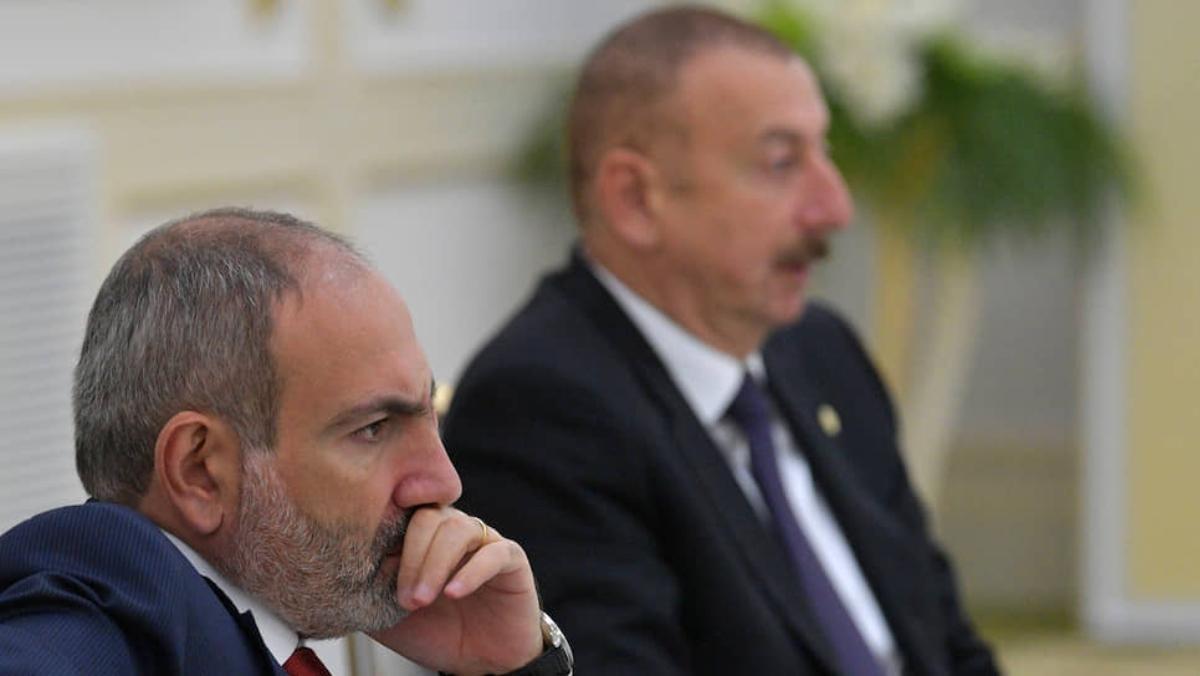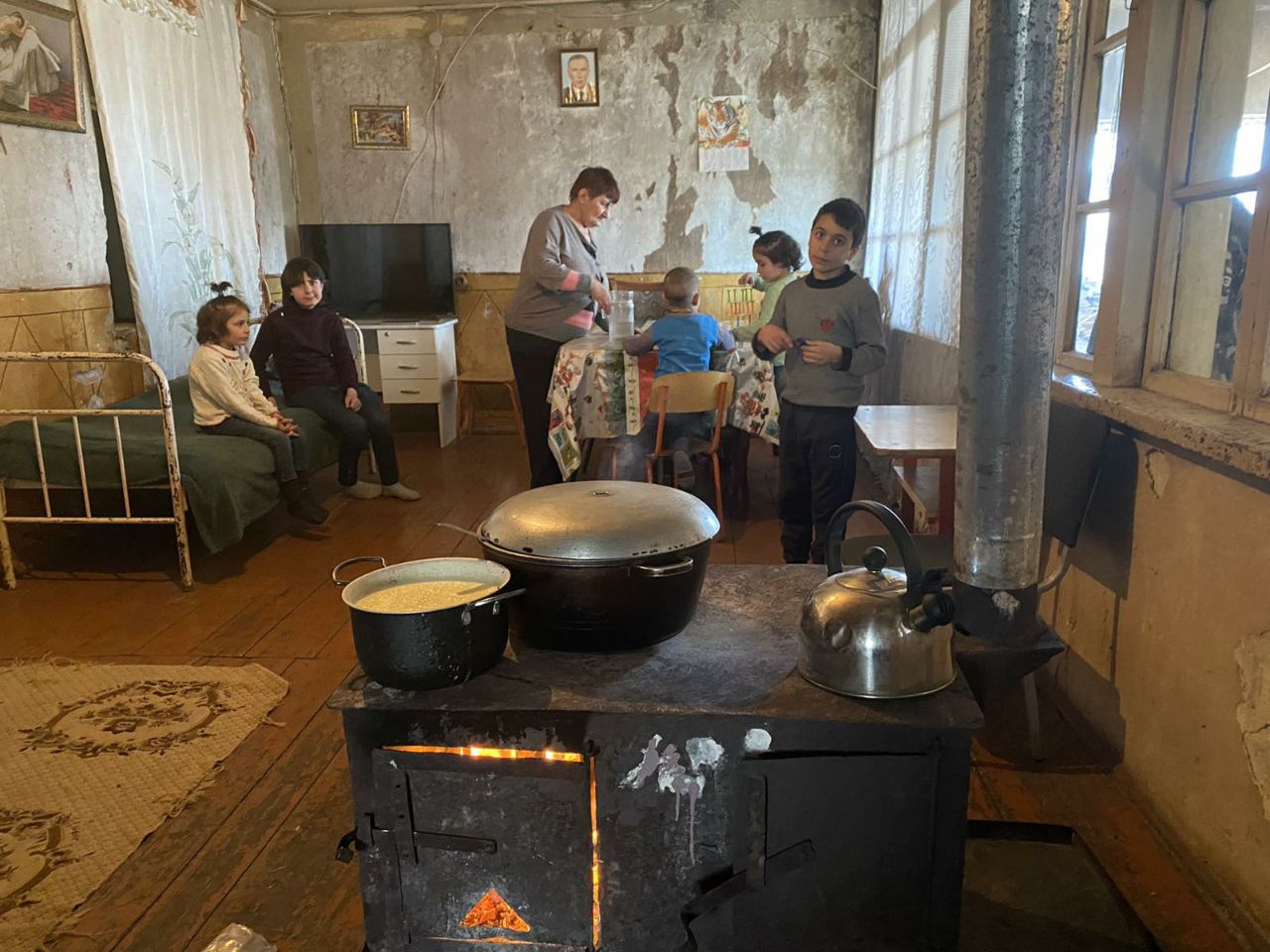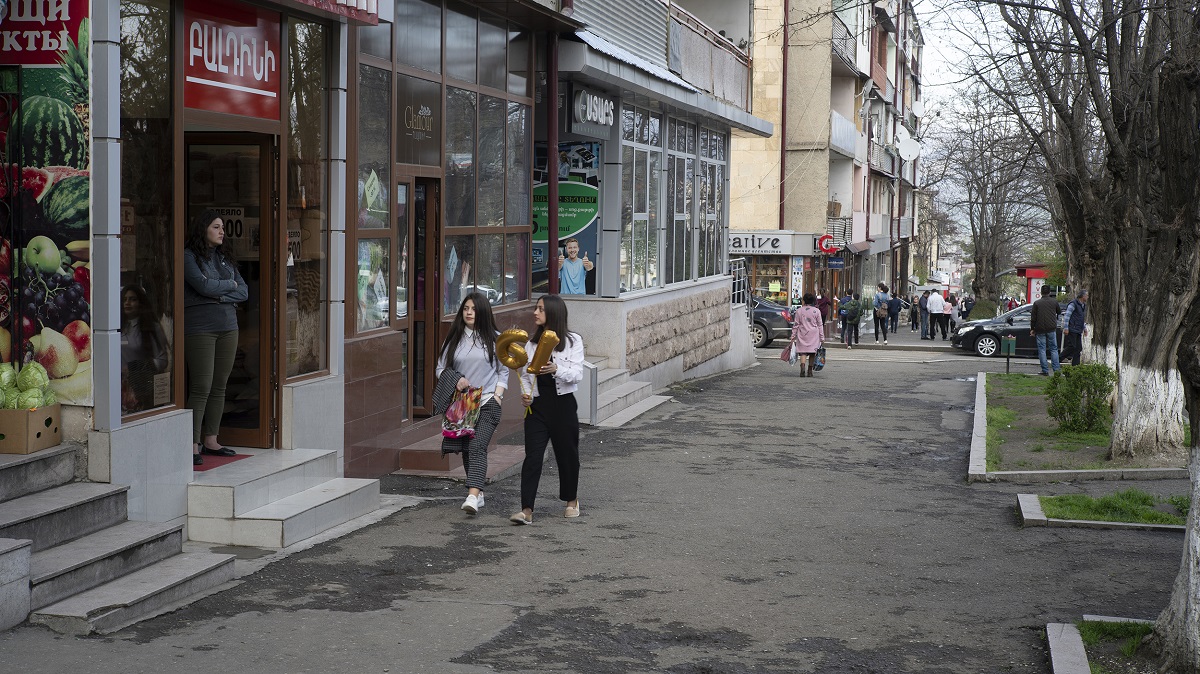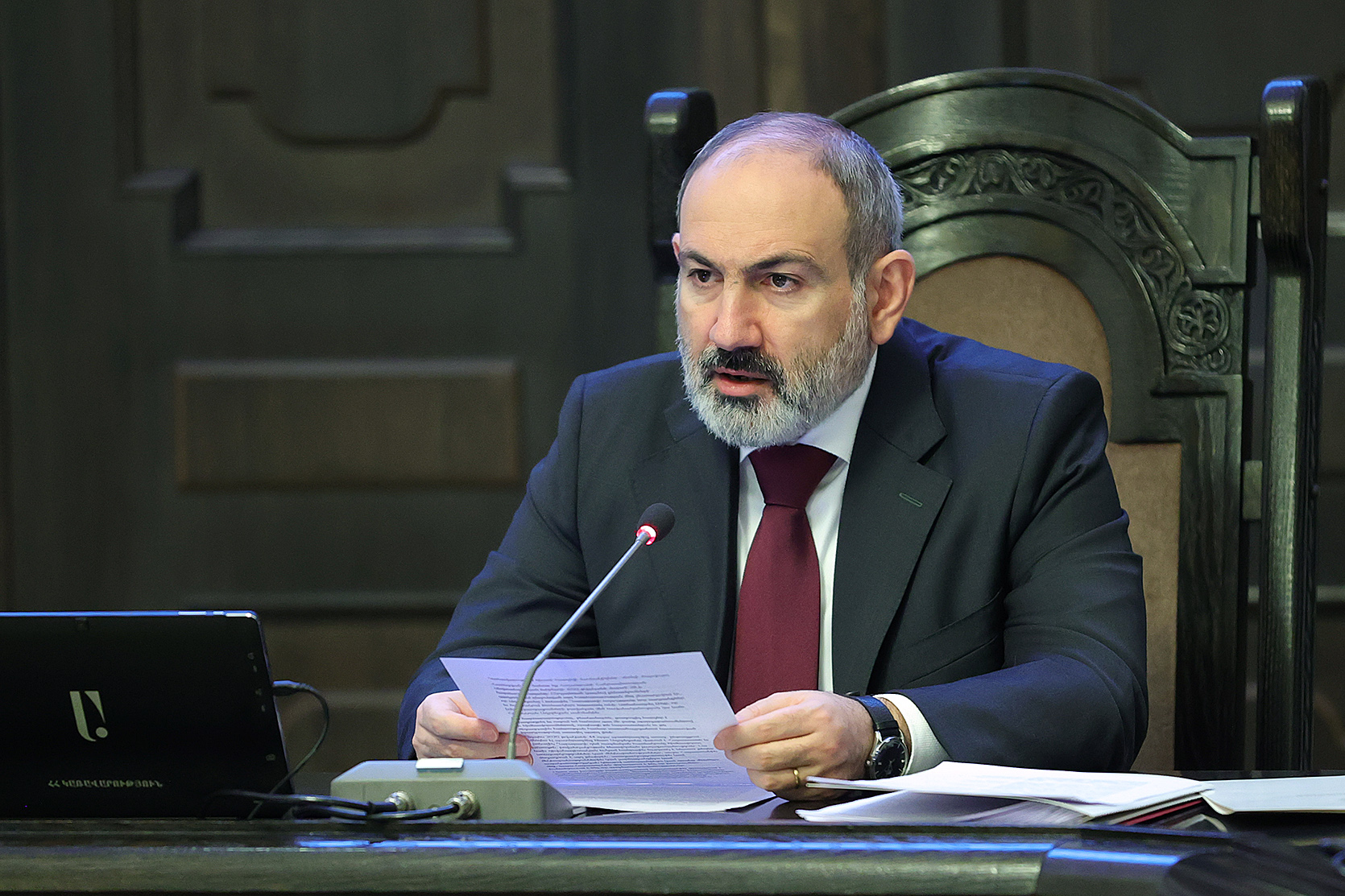Opinions from Armenia: Can we consider PM Pashinyan's statements as "far-sighted" or "contradictory"?
In Armenia and Nagorno-Karabakh, the statements of Prime Minister Nikol Pashinyan, which were made the day before in parliament, are being actively discussed. The Prime Minister’s thesis about the international community expecting Armenia to recognize the territorial integrity of Azerbaijan and “lower the bar in the status of Nagorno-Karabakh” from the Armenian side provoked a wave of criticism. Local politicians and experts assessed this as a rejection of the principle of “the right to self-determination”, the protection of the Armenians of Nagorno-Karabakh, and, at the very least, a “controversial” statement, given other aspects of Pashinyan’s speech.
It also caused indignation among the parents of the soldiers who died during the 44-day war in Karabakh. They launched a flash mob on social media, posting photos of their sons with the caption: “I died for Artsakh”.
Meanwhile, EU Special Representative for the South Caucasus Toivo Klaar described the speech of the Armenian prime minister as “important and far-sighted”. He stressed that the EU supports Armenia “in search of a just peace”.
On April 13, that is, the day after his speech, Pashinyan was already forced to respond to critical remarks about his statement. In particular, he said that he did not mean the withdrawal of Armenians from Nagorno-Karabakh.
- Armenian PM: NK status is not a goal, but means to ensure security of Armenians
- Flag of discord: Yerevan at odds with Armenian opposition over Karabakh flag
- Future of Karabakh mediators: no more OSCE Minsk group?
“We will not give up the right to self-determination”
In Nagorno-Karabakh, Pashinyan’s statements were received extremely negatively. Several NGOs operating demanded a meeting with the President of the unrecognized republic, Arayik Harutyunyan, they were also “outraged by the statement of the Prime Minister of Armenia about ‘lowering the bar’ of the status of NK”.
Arayik Harutyunyan, immediately after the speech of the Prime Minister of Armenia, held an emergency meeting and consultations with parliamentary parties, the head of the Foreign Ministry and the secretary of the Security Council. During the meeting with representatives of public organizations, he assured that “under no circumstances will the authorities of Artsakh give up the struggle for the realization of the right to self-determination”.
The NK Parliament then adopted a statement stating that “the process of forcible annexation of Artsakh to Azerbaijan within the framework of the “peace agenda” between Yerevan and Baku […] will violate the inalienable right of the people of Artsakh to live in their historical homeland”.
The deputies demand that the Armenian authorities abandon their “disastrous position” and, under the pretext of peace, lower the bar for negotiations, agreeing to an unacceptable status. They appeal to Armenians around the world with a request to “support brothers and sisters in Armenia and Artsakh in a just struggle”.
The statement also contains an appeal to the co-chairing countries of the OSCE Minsk Group – the United States, France, and Russia, mediators of peace negotiations on the Karabakh conflict before the 2020 war:
“Regardless of the existing disagreements, take measures to preserve the only format for the settlement of the Karabakh conflict, which has an international mandate”.
“A lower bar implies status within Azerbaijan”
This opinion is shared by political scientist Tigran Grigoryan.
“At this stage, Azerbaijan only agrees with providing NK with a certain model of cultural autonomy, but the “lowered bar” mentioned by Pashinyan, I think, implies some kind of model of political autonomy within Azerbaijan”, the political scientist says.
Tigran Grigoryan finds the Prime Minister’s statements contradictory, as he talks about “lowering the bar” and then states that “status is not a goal, but a means of ensuring the security and rights of the Armenians of Nagorno-Karabakh”.
The political scientist is convinced that any status within Azerbaijan will lead to the Armenians leaving NK:
“This should be obvious to Pashinyan. There are two options: either he is not aware of this reality [․․․], or he is simply dishonest in his statements”.
“Pashinyan’s statements are dangerous”
Former Armenian Ombudsman Arman Tatoyan believes that the Prime Minister’s statements are extremely dangerous for both Nagorno-Karabakh and Armenia.
According to Tatoyan, they are caused by “narrow political interests” and destroy the security system of Armenia:
“In order to hide their own mistakes, not to cause discontent, various high-ranking officials of Armenia irresponsibly justified and legalized the illegal deployment of Azerbaijani armed forces in the area where our villages are located and on our roads. For the sake of their own political interests, statements were made about ceding the territorial jurisdiction of Armenia in favor of Azerbaijan, ignoring the security of the population of Armenia and Artsakh, as well as the right of people to life and their other rights”.
Pashinyan’s response: “People should not leave Karabakh”
The day after the speech, Pashinyan was already responding to criticism addressed to him. He stated that talk about the deportation of Armenians from Nagorno-Karabakh sounds like a ‘threat’:
“One gets the impression that there are people who dream about people leaving Karabakh soon. No. We say that people should not leave Karabakh, they should live in Karabakh, they should have rights, freedoms, a status”.
According to the Prime Minister, his political approach will provide an opportunity to “rid people of the status of a lamb for the slaughter”:
“Armenia is a sovereign state, and we must regain the right to make decisions. We are a country, not a stable. We are citizens, not lambs ready to be slaughtered so that in different places [countries] they decide how and how many of us should be slaughtered or forgiven. We are a state, we are a nation, we are sovereign. Yes, we are proud. We bleed but we have dignity. And we will not allow our right to make decisions to be taken away from us”.
Expert commentary
According to political observer Hakob Badalyan, Nikol Pashinyan’s speech was motivated by “stimulating the most open conversation” on the Karabakh issue and Armenia’s security issues.
He believes that this conversation is necessary for the authorities in the current difficult realities in order to “lead a more flexible line, be able to maneuver and win as much time as possible” on the foreign policy front:
“The rather complicated situation around Armenia, the sharp confrontation between the West and Russia extremely narrow the possibilities of maneuvering for the foreign policy and diplomacy of Armenia. In the presence of the most serious problems – the Karabakh issue, Armenian-Azerbaijani relations, existential security challenges – this field for maneuvers is vital for Armenia”.
The expert emphasizes that Pashinyan openly says that “the international community does not see NK outside of Azerbaijan”, and the Armenian side, of course, only imagines its independent status:
“Therefore, we need to assess this situation, the incompatibility of positions, understand what needs to be done to cope with the dangers, neutralize them, and, if possible, change the attitude of the international community”.
According to the political observer, the expectation of the international community to “lower the bar” can be seen not as a demand, but as a task to justify the “high bar”:
“When we set the bar high, we must strengthen our arguments on this benchmark within the logic of international developments. And the arguments must be backed up legally and politically, as well as by internal force because if necessary, we must be able to physically defend our arguments”.
According to the political observer, after the Russian-Ukrainian events, the main scenarios for the status of Nagorno-Karabakh will depend on relations between Russia and the West. Thus, it is now difficult to predict the possible outcome of the situation.
According to him, while all the major players are trying to promote their scenarios, their approaches are not identical, and there is no common platform on which Armenia could work with them. Hakob Badalyan cites the Minsk Group as an example, where the “joint work of the co-chairs” is not working right now:
“In this situation, our main task is to win as much time as possible, and not to agree to anything that could work against us tomorrow. Even if today it seems that they are the least evil for us, the possibility of avoiding a catastrophe, etc., we have no guarantee that tomorrow a world-class situation will not arise in which today’s decisions can work against us.
According to the expert, in the foreseeable future it is not worth waiting for a solution to the issue of the status of Nagorno-Karabakh, and this time should be used to set the right accents:
“For example, during this period we should be able to argue that remaining within Azerbaijan is an existential danger and threat for Artsakh. This is evidenced by the policy that Azerbaijan is pursuing to this day, from physical security, that is, the simple killing of people, to the destruction of historical and cultural heritage”.
The political observer believes that now Armenia should also focus on strengthening its internal capabilities in order to increase its “external competitiveness”. Otherwise, according to him, Armenia will simply have to rely on the fact that the changes taking place around it will be in its favor.























